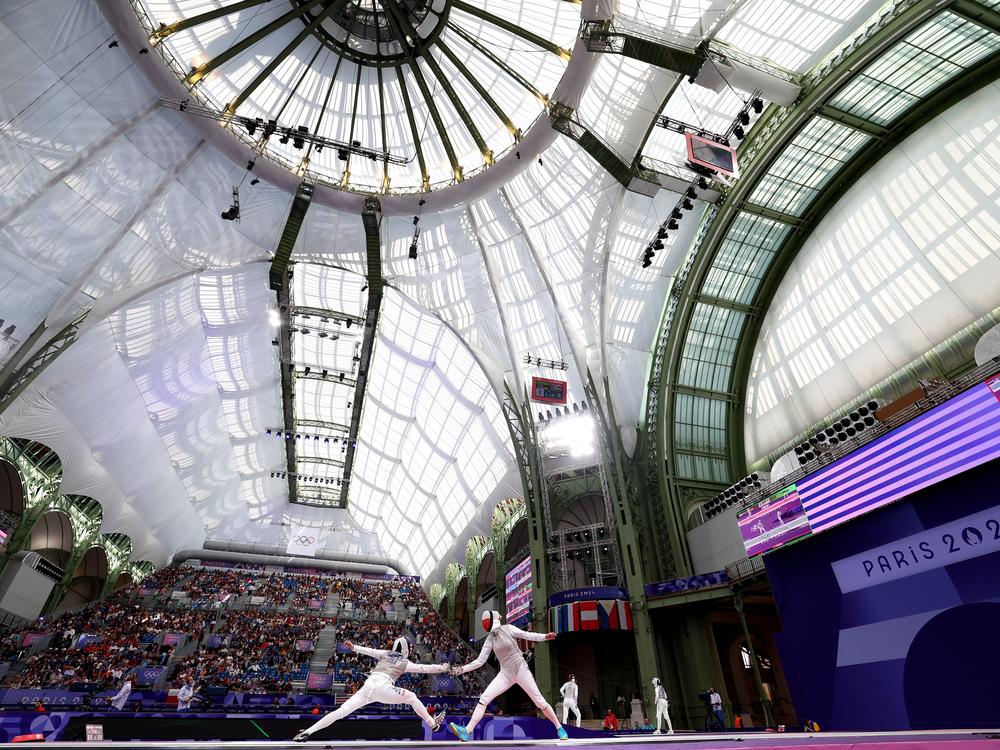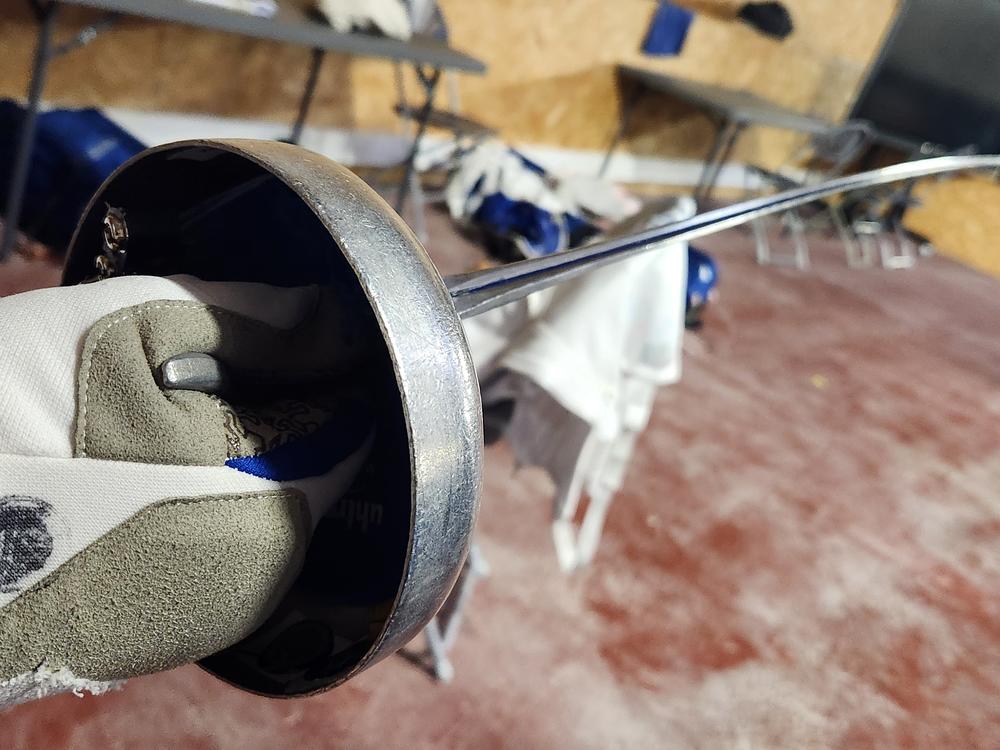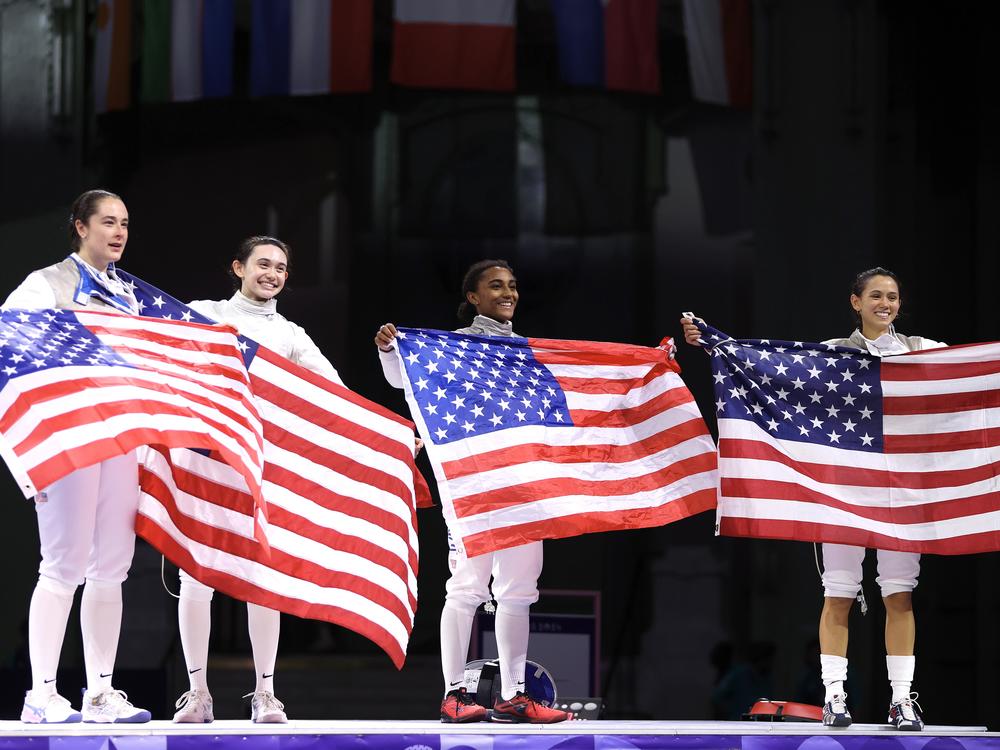Section Branding
Header Content
U.S. women fencers won big at the Olympics. Will it bring more respect and attention?
Primary Content
NPR is in Paris for the 2024 Summer Olympics. For more of our coverage from the Games, head to our latest updates.
PARIS — U.S. women wrapped up Olympic fencing competitions with a first-ever team gold medal for the women's foil squad, a win that came over an Italian women's team - one of the world's best.
"That last bout was super tough," said Lauren Scruggs, who fought the final duel in team competition against Arianna Errigo. "I was obviously going up against an Italian legend. She really brought it to me."
"We’ve put in the work and it shows," said Lee Kiefer, who also won individual gold in Olympic foil. "It’s just putting it together on the biggest stage, and here we are."
The win for the U.S., and the silver medal finish for the Italians, added to a growing rivalry between the countries.
This moment also offers a shot for the American women at more attention and support back home.
This year's matches played out on the biggest stage, in one of the most spectacular venues ever for American fencers, the picturesque Grand Palais, built for the Paris Exhibition of 1900.
"It’s the coliseum, you feel like you’re in the coliseum, it's just crazy," said Anne Cebula, an American epee fencer, who wasn't part of the gold medal-winning foil team.
"Walking out in like this beautiful venue when the stands were just filled to the ceiling, that was incredible," said her teammate Hadley Husisian. "I had to kind of like battle back my smile."
Fencing is divided into three disciplines, fought with three different types of weapon: the foil, the epee and the saber. Normally crowds for the sport are tiny.
"Like at world championships, there were like ten people," Cebula said with a laugh.
Which is ironic because sword fighting is a mainstay in pop culture. From the rollicking duels in Three Musketeers films to the lightsaber fights in the Star Wars saga, Hollywood often leans on techniques taken from this sport's disciplines.
Husisian said movies and TV get almost everything about fencing wrong, hyping up the action. But they're still fun, even for people in the sport.
"When you go to fencing camps, if you haven’t seen [those movies] they’re kind of drilled into you," she laughed.
The women met NPR at a gym on the outskirts of Paris, where they’ve been practicing, to demonstrate what their branch of the sport, fought with the epee, is actually like.
They described their bouts as surprisingly intellectual. Athletic prowess matters, but patience, strategy and cleverness often win out.
"When experience kicks in, it’s easier for you to predict certain opponents' actions," Cebula said.
"I think that’s one of the great things about fencing that it’s not pure athleticism," agreed Husisian, as she turned her epee, a long needle of steel, in a gloved hand.
"It’s making the best of whatever your best qualities are."
While they talked, two fencers dueled nearby with sabers, slashing at each other, their faces covered by protective masks.
The success of the American team in Paris wasn't universal. The men's foil team didn't medal. The U.S. also struggled in epee and saber competitions.
But American athletes hope the action, drama and huge audiences for these Olympic bouts — combined with the women's foil team's gold medal — will draw more attention back home.
The goal is bigger crowds and more young athletes trying the sport.
Husisian said she thinks some of that growth is already happening. "This new generation, there's such a vast wealth of talent, so I think the future is very much bright," she said.
Scruggs, who is Black, and who also won an individual silver Olympic medal in foil competition, said one of her hopes is to expand diversity in fencing. "Growing up I obviously didn’t see anyone like me, so it was kind of like me against the world in fencing," Scruggs said. "I want to show that anyone can fence."
Loading...




